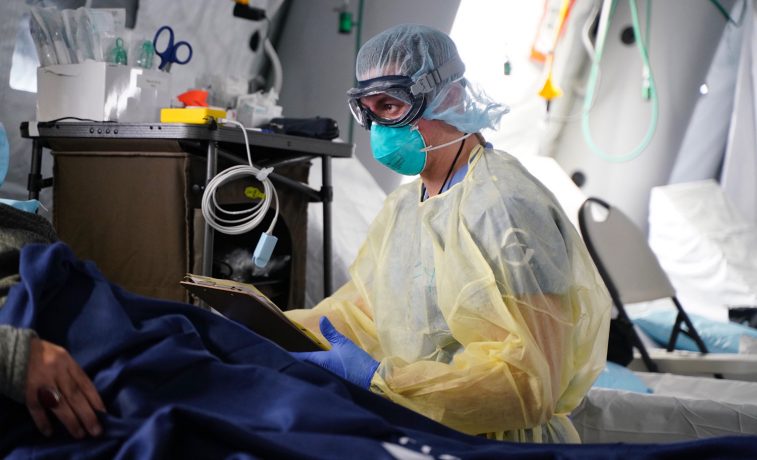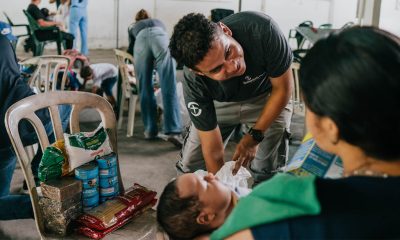A Samaritan’s Purse Disaster Assistance Response Team is working against the clock to save lives in southern Africa.
Hours and even minutes are crucial when it comes to cholera. Without timely treatment, this disease can quickly claim the lives of children and adults. In the southern African nation of Malawi, more than 45,000 people have come down with this life-threatening illness in recent months, and sadly, over 1,500 of these patients did not survive.
While all of Malawi’s 29 districts have been affected, Samaritan’s Purse sent a Disaster Assistance Response Team (DART) to Lilongwe District where the number of new cholera cases has remained consistently high. In early February, we set up a 53-bed Cholera Treatment Center including 20 additional observation beds or chairs, at Nkhoma Hospital, a World Medical Mission partner since 2019.
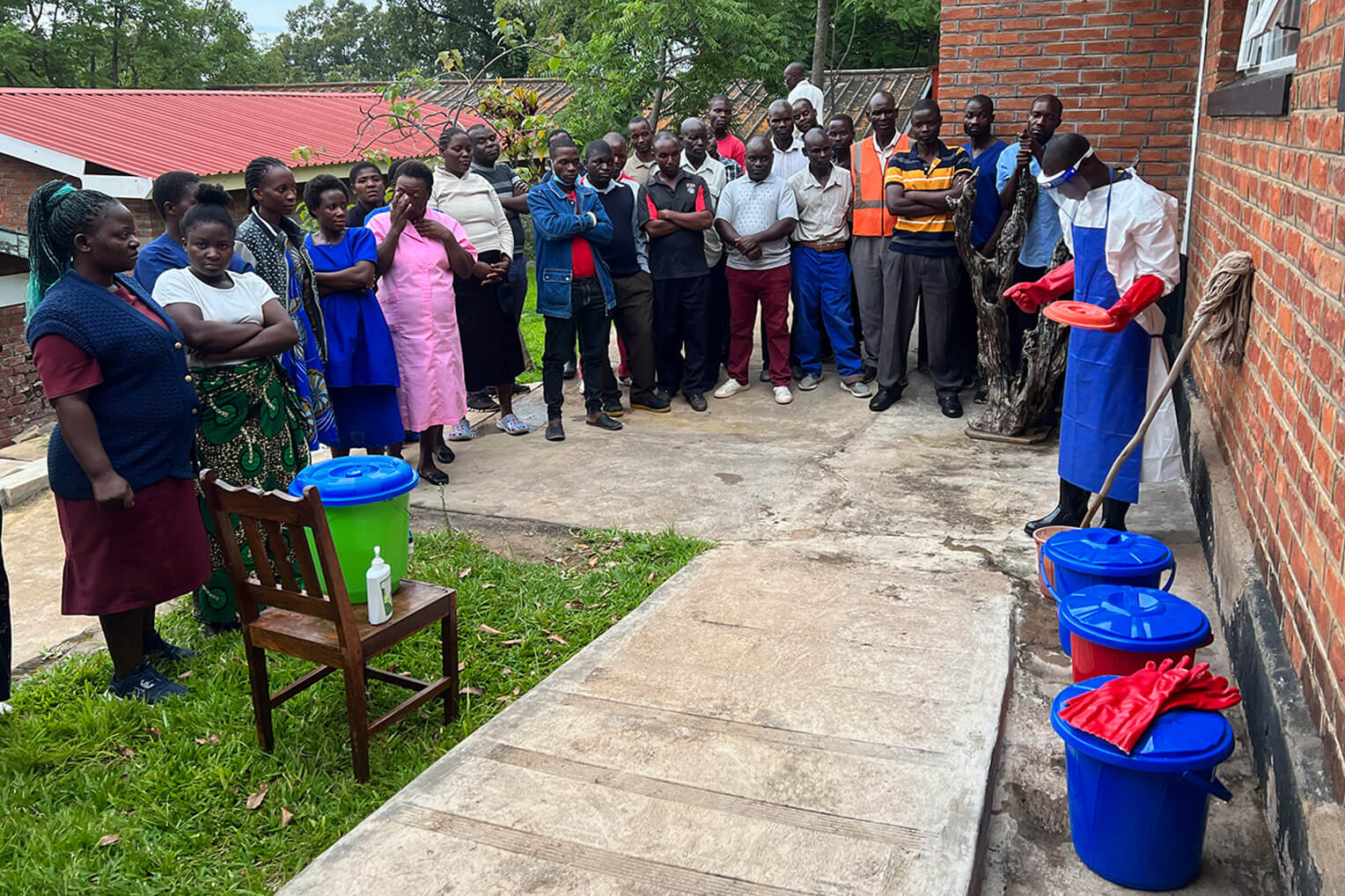
Nkhoma Hospital staff receive training in how to reduce the transmission of cholera and other infectious diseases.
Giving Life Back to Many a ‘Lazarus’
Nurse Josh Tomlin noted that patients come to the cholera triage tent at all stages of the illness. Some walk in relatively healthy while others he described appear as “nearly dead” when they arrive.
“I will never forget the sound of a motorcycle again,” Tomlin said. “The sickest of our patients often come in on a motorcycle, wedged between a driver in the front and a family caregiver, to make sure they don’t fall off.”
Tomlin and his team have begun to call these patients “Lazarus.” They come in on the brink of death, but after receiving intravenous (IV) fluids, “they perk right back up and seem to be brought back to life,” he said.
Tomlin remembers one of these individuals particularly well.
“One day down in the triage tent, I had one of these ‘Lazarus’ patients dragged in by family, and we immediately got to work getting IV access. He didn’t flinch or pull away as we got our bilateral 18-gauge needles in his arm. When it came time to transfer him to the wards for extended treatment, we still needed to significantly assist him to the wheelchair.”
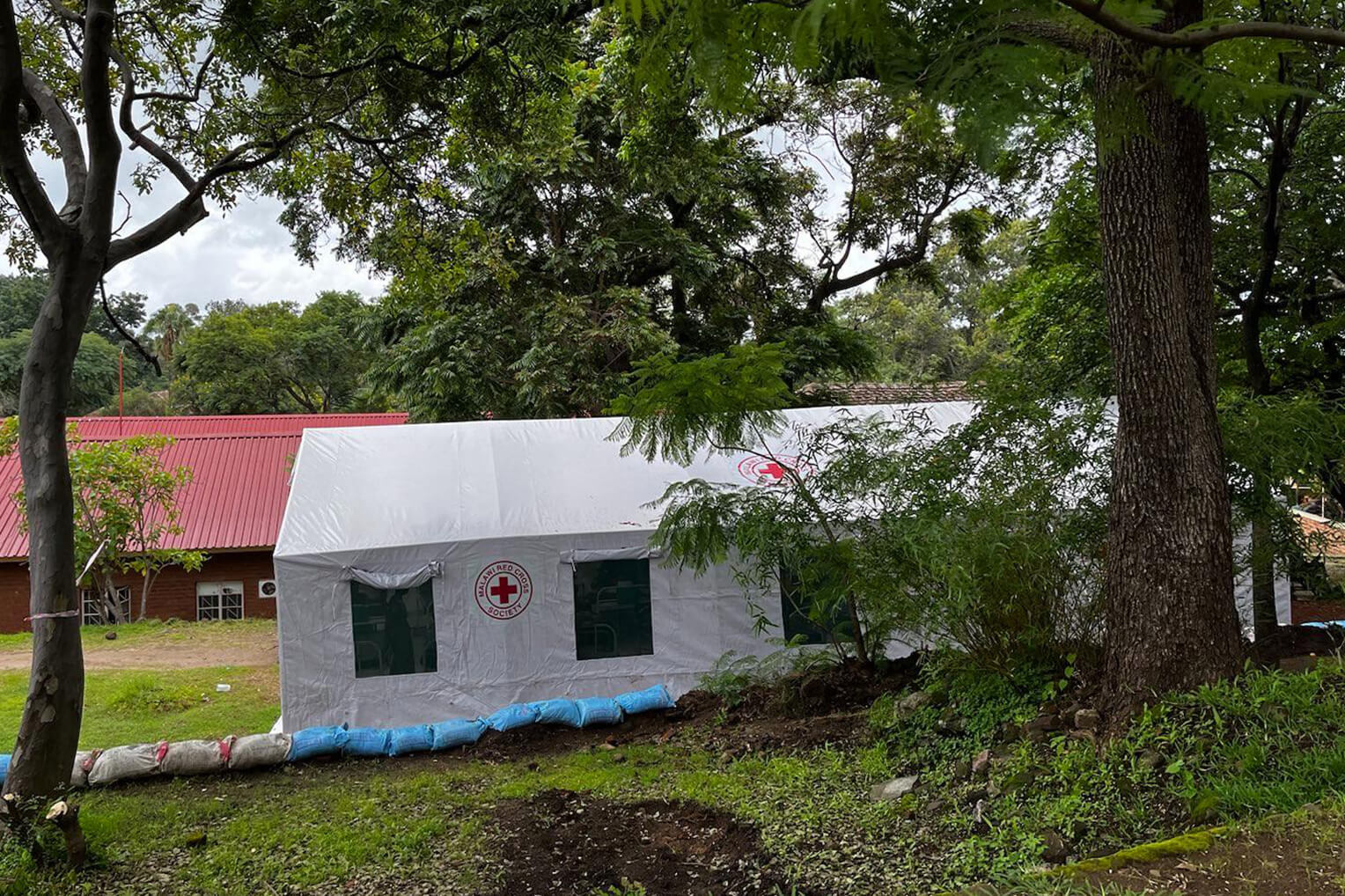
Our disaster response specialists have treated hundreds of patients at Samaritan’s Purse Cholera Treatment Center in Malawi.
Tomlin got this “Lazarus” to his bed and went back to his role in the triage tent. When he returned to the ward later in the day with another patient, he found his earlier “Lazarus” sitting up, laughing, eating potatoes, and speaking to him in English.
This man said to Tomlin, “God bless you. Thank you for all you’re doing here.”
Both the nurse and the patient believe this “Lazarus” would have died if it wasn’t for the care he received from the DART.
Tomlin said, “Praise Jesus we were here to receive him when he showed up!”
Loving Patients and Sharing the Gospel
Cholera is contracted after ingesting contaminated water or food, but it can also spread through infected surfaces. Within 12 hours to five days of exposure, aggressive symptoms, including severe diarrhea, can show up. In Malawi, cholera is affecting all ages, with those over 70 being three and half times more at risk of getting the disease.
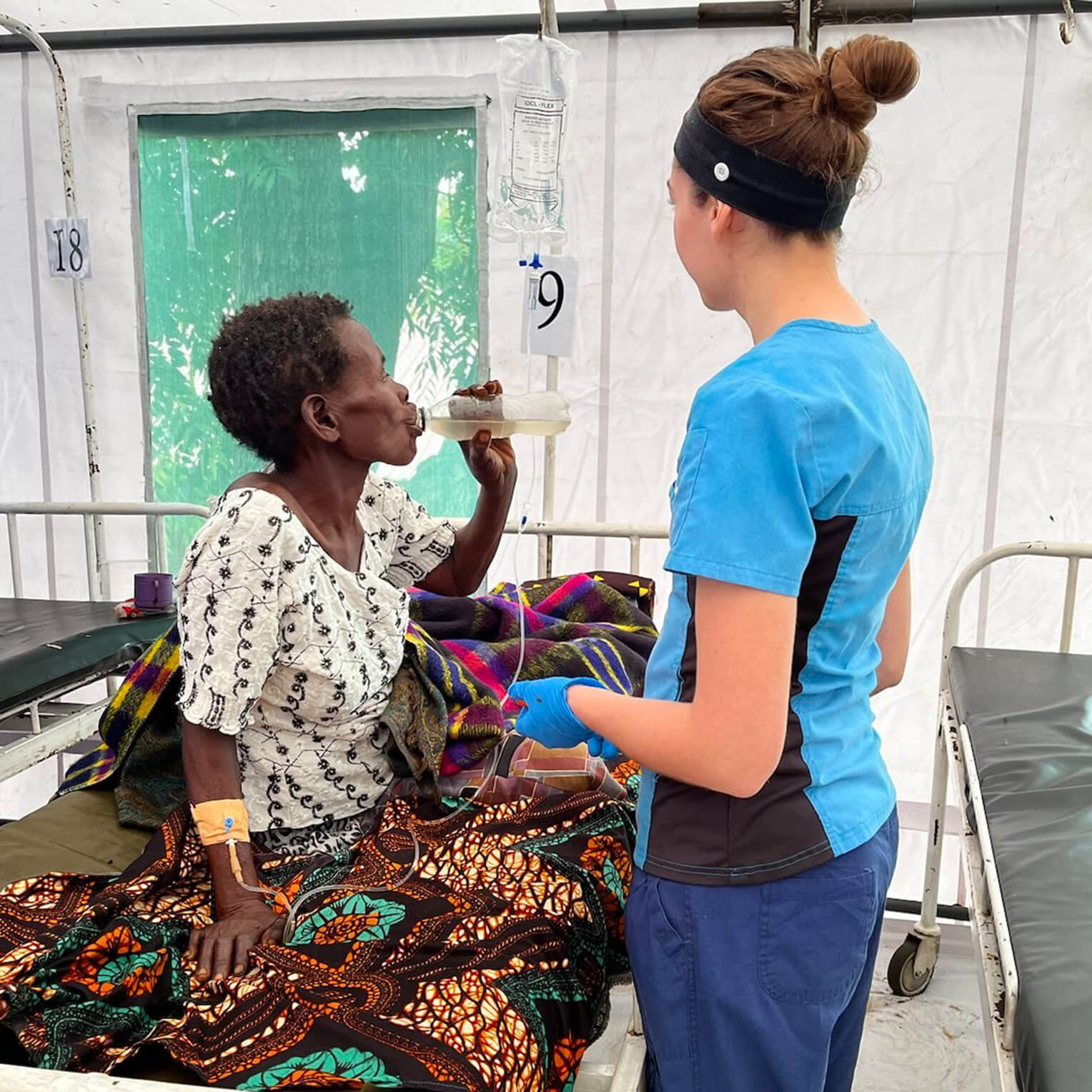
The DART staff offer medical help to each patient in Jesus’ Name.
As a triage nurse, Jen Robertson doesn’t often get to witness the full recovery of the cholera patients. Her job is to start the IVs and fluid volume infusions so they can rehydrate and go on to recover from the devastating but preventable illness.
“One of the young men who arrived to the cholera triage tent was carried in by his friends,” Robertson said. “He was dehydrated and near death, barely able to lift his head.
“Just one day after he was admitted, I ran into him on the way to get supplies. He was walking around and laughing with his friends.” Robertson noticed his bright eyes and face, no longer gaunt with dehydration. “He smiled and enthusiastically waved a ‘thank you’ to me,” she said. “What a gift it was to see him healthy and happy!”
The DART is also providing cholera prevention education to patients, and after one such session came to a close, Allison Harlos shared the Gospel with the entire ward. She said, “I told them that we were not only there to help take care of them physically, but also to love them and show and tell them how much God loves them. I explained that the most important decision that they could make was to put their faith and trust in Jesus.”
Harlos later distributed Bibles to these patients with hopes that they would share the Word of God in their villages.
Working Together to Provide Timely Assistance
When World Medical Mission leadership learned in mid-January that the staff of Nkhoma Hospital was overwhelmed with the number of cholera patients arriving at their doors, Samaritan’s Purse soon made the decision to send a DART to assist.
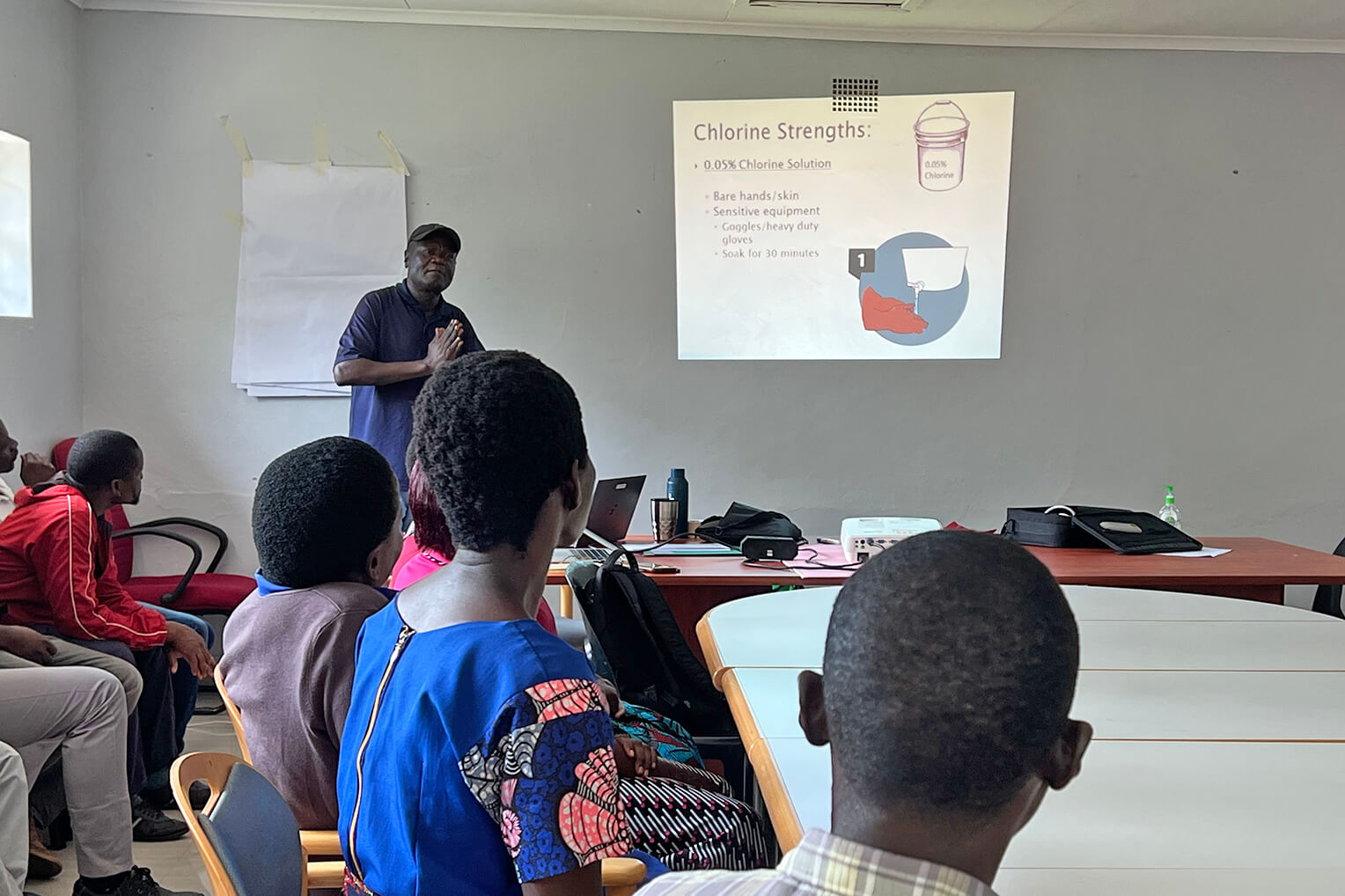
The DART is also working with together with Nkhoma Hospital staff to help prevent the spread of cholera and other infectious diseases.
Four weeks into this effort, Clinical Director Regina Randolph said the DART is making a significant contribution at the large mission hospital.
“While speaking to Paul Mekani, principal nursing officer of Nkhoma Hospital, he spoke of how much difference we have made since we have been here: from caring for patients, to the attitude and demeanor of the hospital staff,” said Randolph. “It has been incredible to see the change we have made here in such a short period of time.”
Up until the DART’s arrival on Feb. 6, Samaritan’s Purse had helped fund Nkhoma Hospital’s efforts to treat more than 300 cholera patients. Now through their combined efforts, more than 800 such patients have been served.
“Many lives will be saved through this cooperation,” said Scott Hughett, director of World Medical Mission. “It is exciting to see how all parts of our ministry can work together for God’s glory.”
Please pray for this cholera outbreak to increasingly be brought under control. Ask that Samaritan’s Purse and Nkhoma Hospital staff will continue to serve the people of Malawi well in Jesus’ Name.
